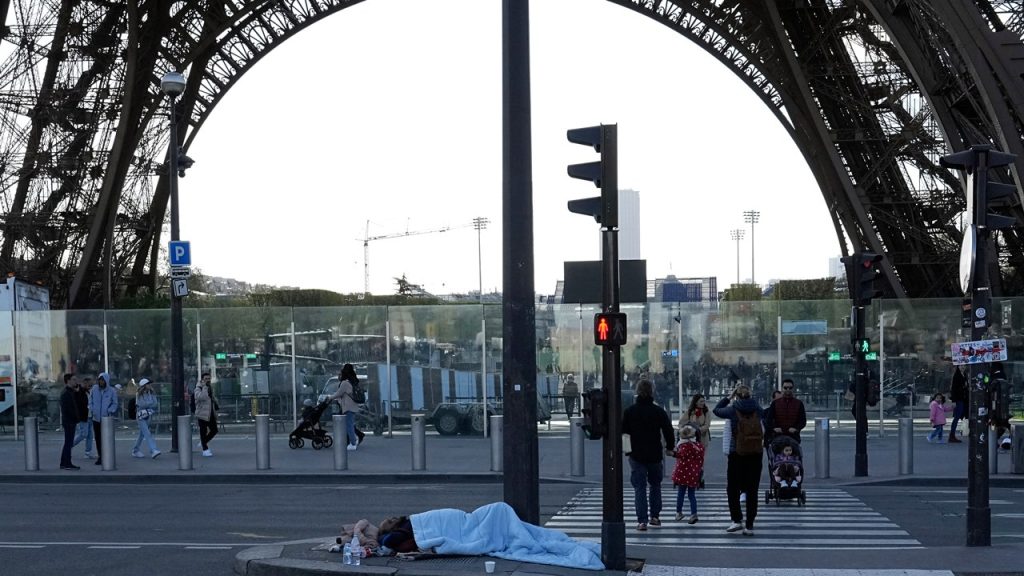With the Paris Olympic Games just 100 days away, authorities in France carried out a large-scale eviction at the country’s biggest squat in a southern suburb of Paris. The makeshift camp, located in an abandoned bus company headquarters in Vitry-sur-Seine, had become home to around 450 migrants. The images of the eviction quickly spread across social media, drawing attention to the broader effort by Paris authorities to clear out migrants and other individuals sleeping rough in the city before the summer Olympics. Concerns have been raised by aid workers who fear that those evicted are not being provided with longer-term housing assistance.
The squat had reportedly doubled in size over the past year, with many displaced individuals moving there after being cleared out from nearby the Olympic Village. The conditions inside the warehouse were described as cramped by aid workers. The clearance operation took several days to complete, with 150 people leaving the site voluntarily the night before the police arrived, and 300 being evicted on the following morning. Among those removed were 20 children and 50 women. The accelerated pace of camp clearances as the Games approach has been criticized by advocacy groups, who warn of the dire consequences for those left without shelter.
Advocacy groups working with the homeless and vulnerable populations have voiced their concerns about the situation. They fear that many of the migrants evicted from the squat will soon find themselves sleeping rough on the streets again. The fate of displaced individuals, particularly families with school-going children, remains a pressing issue as the city prepares to host the Olympics. The tension between urban beautification efforts and support for marginalized communities is highlighted by these events. French authorities have been working with aid groups to manage the situation and ensure that those affected receive the support they need.
The eviction of migrants from makeshift camps is part of a broader push by local authorities to clear out such sites ahead of the Olympics. In one recent incident, French police removed about 50 migrants, including families with young children, from the forecourt of Paris City Hall and transported them to temporary government housing in another town. French Sports Minister Amelie Oudea-Castera emphasized that the eviction was not related to the Olympics, stating that such policies were implemented both before and after the Games. She stressed the importance of handling difficult situations with humanity and fairness, and working closely with aid groups to provide support to those affected.
The umbrella association Revers de la Medaille, which highlights the harmful effects of the Games on vulnerable populations, expressed concerns about the fate of families with school-going children who were evicted from the squat in Vitry-sur-Seine. As the city gears up to host the Olympics, the attention to the plight of marginalized communities and efforts to support them in the face of urban beautification projects remain crucial. The tension between preparing for a major global event and ensuring the well-being of all residents, especially the most vulnerable, is a challenge that authorities and advocacy groups continue to grapple with._HORIZONTAL_RULE_
In Paris, as the city prepares to host the Olympics, a large-scale eviction was carried out at the country’s biggest squat in a southern suburb. The camp, housing around 450 migrants, was located in an abandoned bus company headquarters in Vitry-sur-Seine. Concerns have been raised about the broader effort by Paris authorities to clear out migrants and individuals sleeping rough in the city before the summer Olympics, with aid workers worried that those evicted are not being provided with longer-term housing assistance.


